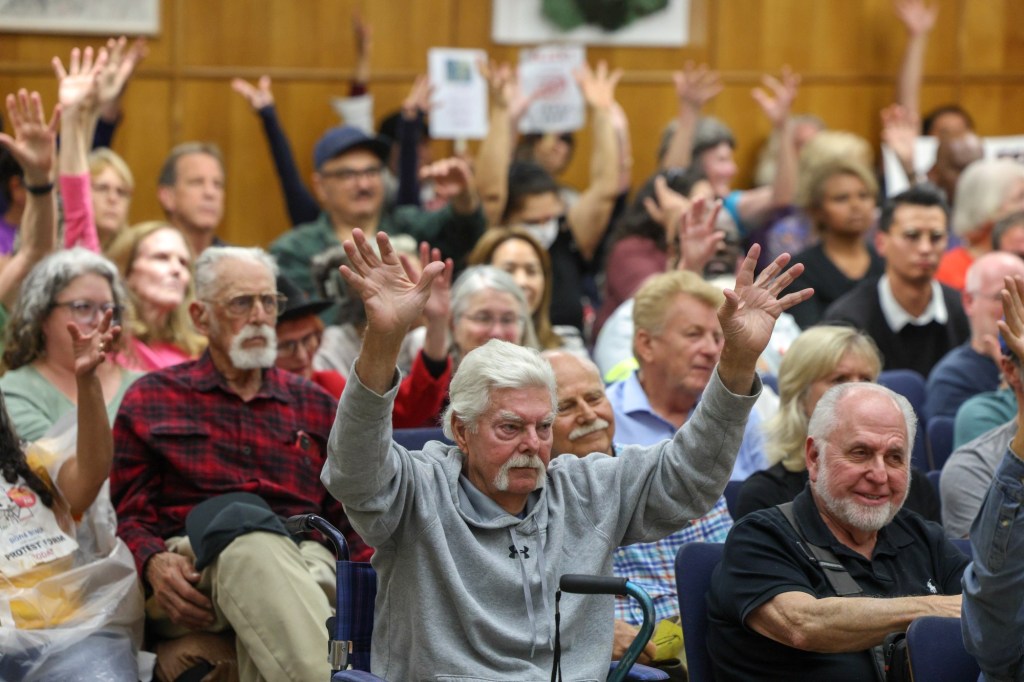On Oct. 3, a U-T editorial was posted that said the San Diego City Council’s decision to delay adopting huge water and sewer rate hikes at a meeting in which several members decried the high cost of living was a hollow gesture. Our warning: Even after a bait-and-switch campaign to force 226,000 homeowners to pay far more for trash service, the first-ever parking fees at Balboa Park and the San Diego Zoo, and the adoption of costly “dynamic” parking rates downtown, elected leaders were just getting started in trying to raise revenue by any means necessary. Doing so was an easier way for them to deal with their chronic overspending than taking on public employee unions by freezing compensation, utilizing technology to downsize the city work force or using “managed competition” to provide services more cheaply.
A day later, Councilmember Sean Elo-Rivera confirmed we were correct. At Politifest 2025, sponsored by Voice of San Diego, he called for the city to charge fees to tourists who wanted to go to Mission Bay and Torrey Pines Golf Course, and to add to the taxes already paid by owners of second homes and vacation rentals. It wasn’t clear if San Diego County residents would be considered tourists when they visited attractions that had been part of their lives for decades, but previously Elo-Rivera had endorsed having them pay more for parking at popular sites.
It’s time for San Diegans to push back. One powerful way to do so is launching a signature-gathering campaign for what might be called the 2022 Restoration Act, returning city trash and parking fees to the levels seen that year. This would require the city to run a new, honest version of its campaign to persuade voters to raise trash collection fees. The 2022 push for Measure B, which enabled this year’s approval of new city trash policies, was built on deceit about how much the fees would be.
Unless some deep-pocketed groups or individuals stepped forward with millions to fund the effort, gathering sufficient signatures to place the measure on the 2026 ballot would seem to be a daunting task. For example, to qualify a charter amendment for voter consideration in San Diego, 15% of registered voters — or about 120,000 — would have to sign petitions.
But in a Friday interview, the president of the Howard Jarvis Taxpayers Association said that under Proposition 218 — approved by state voters in 1996 — that’s not the case. Jon Coupal, who wrote the measure, noted that it specified that “the initiative power shall not be prohibited or otherwise limited in matters of reducing or repealing any local tax, assessment, fee or charge.”
This power was protected by the specific requirement that only 5% of the total number of votes in a local government in the last gubernatorial election are needed to force a referendum on a local tax or fee.
In the 2022 governor’s race, 421,007 San Diegans cast ballots. So it would take 21,051 verified signatures of city residents to put the new trash and parking fees on the 2026 ballot. How long would it take 50 volunteers to pull that off — two months?
Just the threat of such a campaign could force Mayor Todd Gloria and a council majority to change their ways. The prospect of losing at least $170 million in annual revenue would be taken much more seriously than angry, incredulous letters to the editor.
Here’s hoping that this moves from an idea floated in an editorial to a concrete proposal — the sooner, the better.
Originally Published: October 10, 2025 at 5:57 PM PDT
